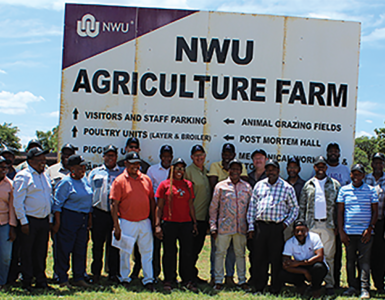SPECTRUM: The probe comprises the most comprehensive effort yet to study how autism affects the brain at the molecular level…
By WSAM Correspondent
Brain changes in autism are comprehensive throughout the cerebral cortex rather than just particular areas thought to affect social behavior and language.
This is according to a new University of California (UCLA)-led study that significantly refines scientists’ understanding of how autism spectrum disorder (ASD) progresses at the molecular level.
The study, published recently in Nature, represents a comprehensive effort to characterize ASD at the molecular level. While neurological disorders like Alzheimer’s disease or Parkinson’s disease have well-defined pathologies, autism and other psychiatric disorders have had a lack of defining pathology, making it difficult to develop more effective treatments.
The new study finds brain-wide changes in virtually all of the 11 cortical regions analyzed, regardless of whether they are higher critical association regions – those involved in functions such as reasoning, language, social cognition and mental flexibility – or primary sensory regions.
“This work represents the culmination of more than a decade of work of many lab members, which was necessary to perform such a comprehensive analysis of the autism brain,” said study author Dr. Daniel Geschwind, the Gordon and Virginia MacDonald Distinguished Professor of Human Genetics, Neurology and Psychiatry at UCLA. “We now finally are beginning to get a picture of the state of the brain, at the molecular level, of the brain in individuals who had a diagnosis of autism. This provides us with a molecular pathology, which similar to other brain disorders such as Parkinson’s, Alzheimer’s and stroke, provides a key starting point for understanding the disorder’s mechanisms, which will inform and accelerate development of disease-altering therapies.”
Just over a decade ago, Geschwind led the first effort to identify autism’s molecular pathology by focusing on two brain regions, the temporal lobe and the frontal lobe. Those regions were chosen because they are higher order association regions involved in higher cognition – especially social cognition, which is disrupted in ASD.
For the new study, researchers examined gene expression in 11 cortical regions by sequencing RNA from each of the four main cortical lobes. They compared brain tissue samples obtained after death from 112 people with ASD against healthy brain tissue.
While each profiled cortical region showed changes, the largest drop off in gene levels were in the visual cortex and the parietal cortex, which processes information like touch, pain and temperature. The researchers said this may reflect the sensory hypersensitivity that is frequently reported in people with ASD. Researchers found strong evidence that the genetic risk for autism is enriched in a specific neuronal module that has lower expression across the brain, indicating that RNA changes in the brain are likely the cause of ASD rather than a result of the disorder.
One of the next steps is to determine whether researchers can use computational approaches to develop therapies based on reversing gene expression changes the researchers found in ASD, Geschwind said, adding that researchers can use organoids to model the changes in order to better understand their mechanisms.
OBITUARY
EX-BOXING MENTOR MTSHALI’S FAREWELL TINGED WITH SOMBRE MEMORIES
CONUNDRUM: How come a sport so loved could present so unedifying, agonising legacy of its celebrated gladiators?

By Sekola Sello
A few weeks ago, I and two friends – Willie “Wavers” Bokala and Phil “Doc” Mtimkulu – went to Soweto to bury a friend and former boxing manager, Ezekiel Modupe Mtshali.
We wanted to meet old friends in the boxing community we hadn’t seen or heard about in many years. Former fighters. Managers. Followers of the fight game. Soweto’s boxing fraternity was always a breed apart – natty dressers and street smart.

These were the people the three of us wrote about as young journalists. We went to the Mtshali funeral service expecting a celebratory occasion. Largely, alas, it was not to be. We were overcome with mixed emotions. Largely sad.
It was pleasing to see the dashing figure of prominent businessman and boxing enthusiast of years, Sammy Sello Noinyane. It was equally heart-warming to chat, albeit briefly, with former champion Morris “Yankee” Mohloai. He looked dapper. No signs of a battle-scarred warrior. My cousin, Sekola Sello, who fought under the name David Moyo is still a natty dresser. No sign that he is pushing towards the 80s.

Former provincial champion, Ben TNT Lekalake, was also there. We didn’t see him but were informed that he is still in great shape. TNT is a former colleague of ours, but we have seen very little of him since he returned from exile in the early 90s. Good to know the champ is still in great shape. Yet, sadly, the same could not be said about other former warriors.
We saw a few broken bodies, some of whom we could not easily recognise. “Hi Champ”. A grin and a limpish “Hi” was all the retort. The saddest moment for me, in particular, was to greet a former national champion, a boxer whose epic fights at the Wembley and Rand stadiums are still talked about memorably even today by those of us fortunate enough to have witnessed. He didn’t recognise me despite the fact that I had written tomes about him and had spent hours with him at training when he was preparing for fights.
Truly sad.
I think he hardly recognised many of the people around him as he shadow-boxed during the funeral service. I have never been able to resolve the conundrum that is boxing. The sport that has brought so much joy to millions of people around the world can also be the source of the pain I witnessed in Soweto two weeks ago.
Published on the 93rd Edition.





























